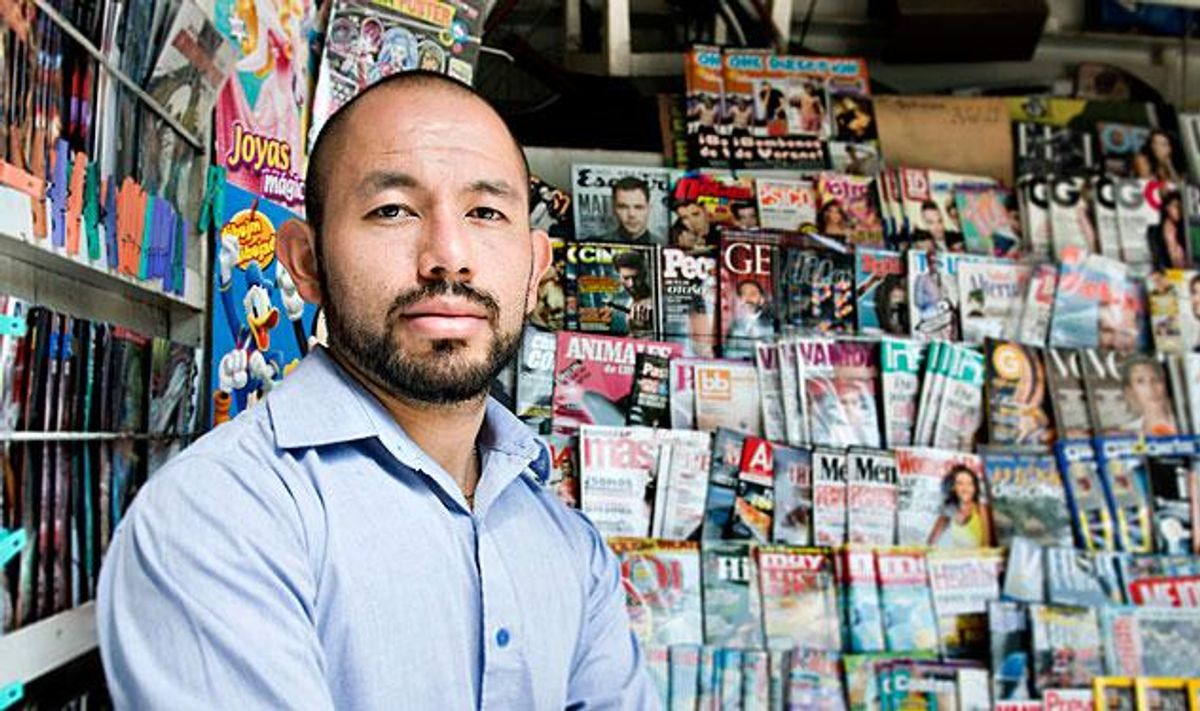Out in Mexico
Marriage Warrior
Marriage Warrior

Alex Mendez is taking his battle for equality to the courts — and winning.
October 15 2013 9:58 AM EST
February 05 2015 9:27 PM EST
By continuing to use our site, you agree to our Private Policy and Terms of Use.
Marriage Warrior

Photograph by Adam Wiseman
"I didn't know what was going to happen," says Alex Mendez, a constitutional lawyer. "It was just an idea." But that idea -- fighting for same-sex sex marriage in a southern Mexican state -- laid the groundwork for an entire nation's nascent equality movement.
Like its neighbor to the north, the United Mexican States are federalist, meaning that while Mexico City, the capital, legalized marriage equality in 2010, LGBT couples in 30 other states are still waiting to walk down the aisle on their home turf. (Same-sex marriage is also legal in the small Gulf Coast state of Quintana Roo.) So, two years ago, Mendez, a then-24-year-old law student, did what others refused to do: He represented a couple who wanted to get married in Oaxaca, his home state. And then he took that case, and two others, to the Mexican Supreme Court -- and won. But under Mexican law, it takes five Supreme Court decisions to set a precedent, so Mendez must now win two more cases to pass marriage equality in Oaxaca. Then there's the rest of the country.
No national LGBT organization exists in Mexico, but more established leaders tried to dissuade Mendez when he began his battle in Oaxaca. "There was a discussion that maybe we could win another argument, not necessarily marriage," says Mendez, sitting outside a cafe in Mexico City's Zona Rosa, the gay neighborhood. Most gays and lesbians in Mexico would rather work through political channels, striking compromises, but Mendez says Mexican politicians aren't concerned about the cause, nor are the ruling classes. "We don't have rich people who are interested in these topics," says Mendez. "For rich people, it's easier because doors are open and it's easier to come out. I'm interested in changing the minds of people who fight for rights, because people think we have won everything, but we haven't."
Despite the naysayers, Mendez used his connections in law school, his burgeoning fame, and social media to help form a small but expanding network of like-minded activists who want to pass marriage equality in their states, including Chihuahua, Morelos, Colima, and Yucatan, where same-sex nuptials are specifically forbidden. Each state brings its own challenges.
Activists in northern states like Chihuahua must combat a deeply religious local culture, while those in the south, including Oaxaca and Chiapas, must battle more pressing matters, like local poverty and unemployment -- "the kinds of things that maybe don't put attention on sexuality," Mendez explains. There's also stigma, which prevents some same-sex couples from joining the fight. "Maybe some of them prefer to come to downtown to get married and nobody knows that they get married," says Mendez. His own family, though supportive of him, had problems with their son's sexuality becoming national news.
Mendez, who is single and spends his rare free time playing on a gay basketball team, is looking forward to expanding the movement he began on a whim, but he's not interested in being its leader. "It's difficult for me to work in [activist] teams, because of these ideas about having to have political agreements." But whether he likes it or not, Mendez is a leader. A renegade, but a leader just the same.